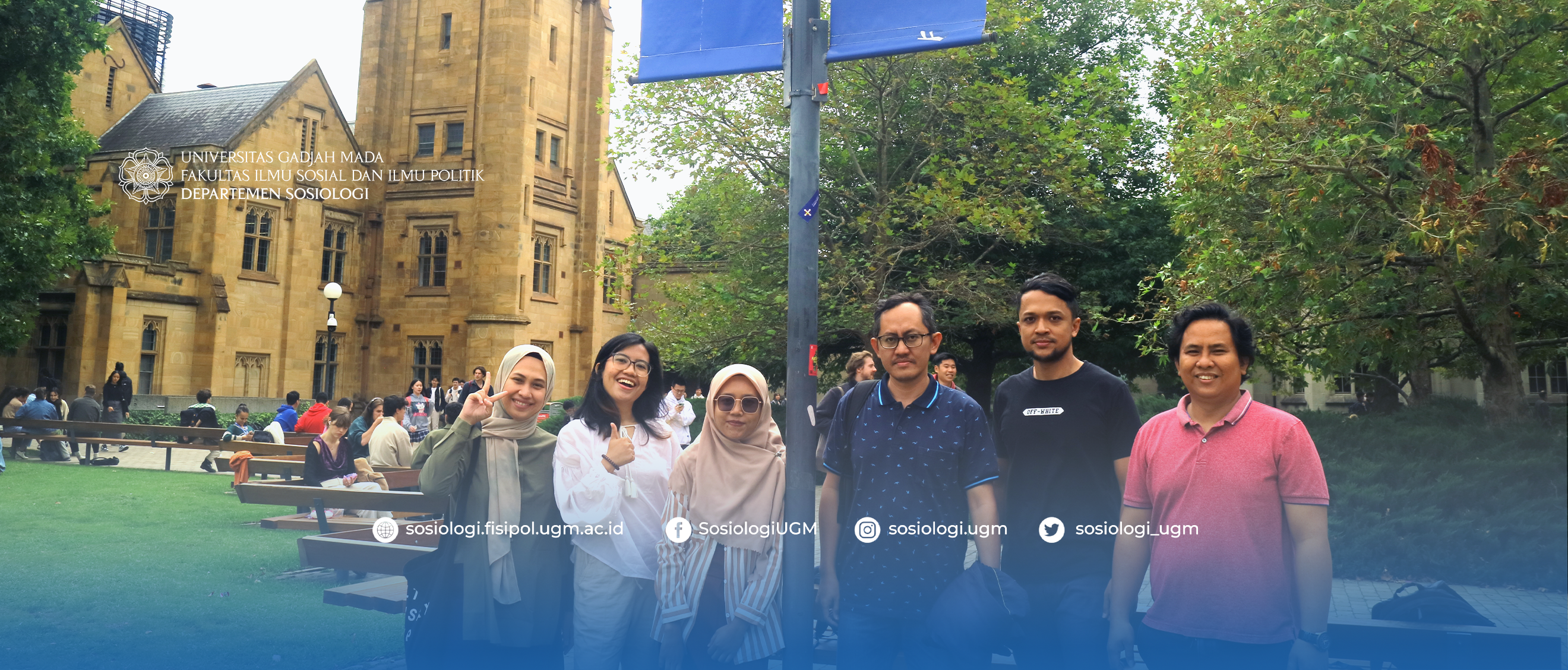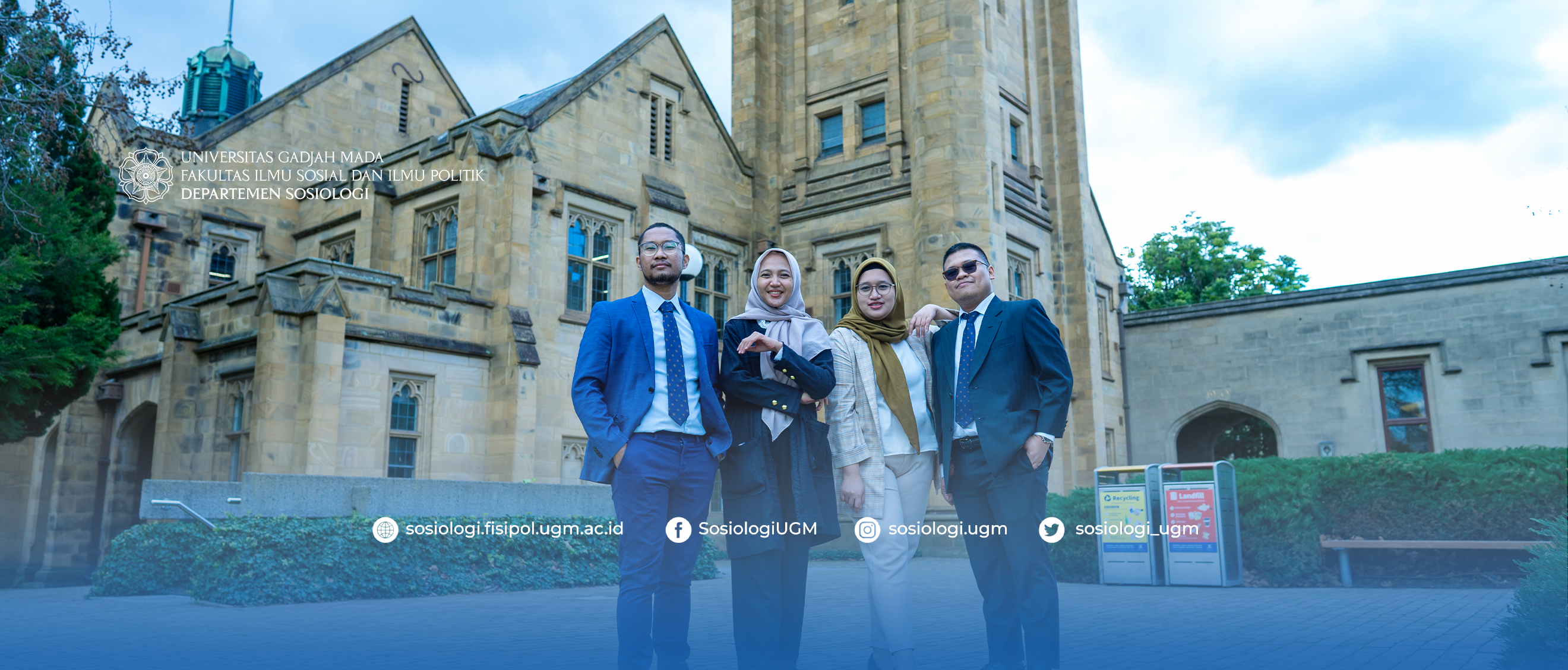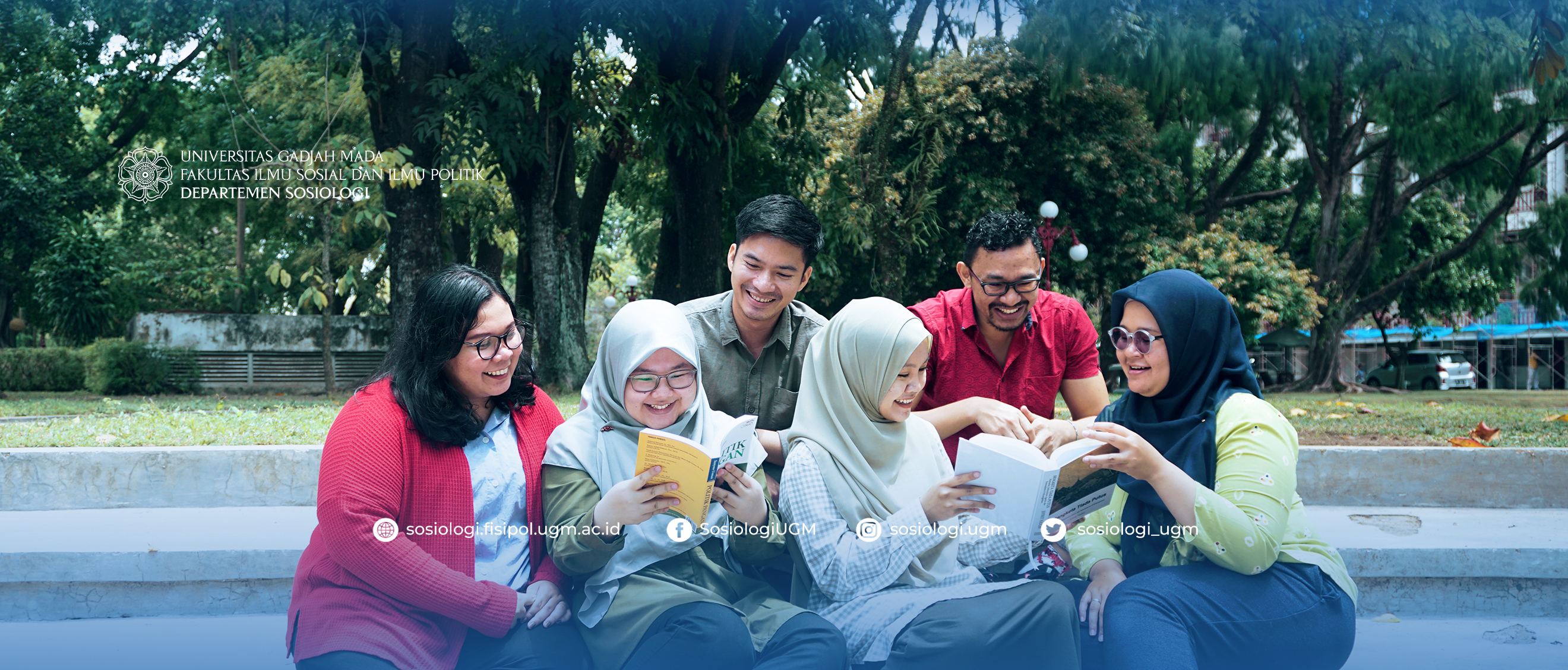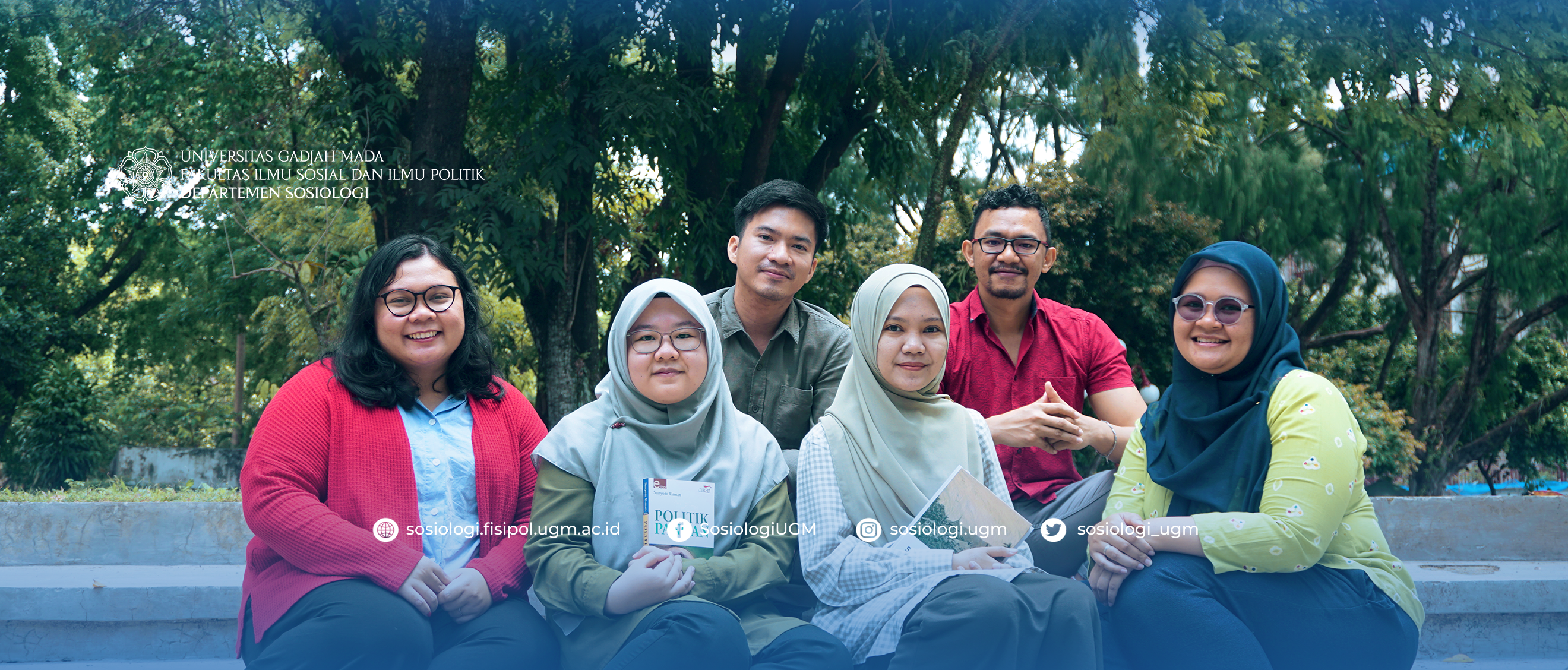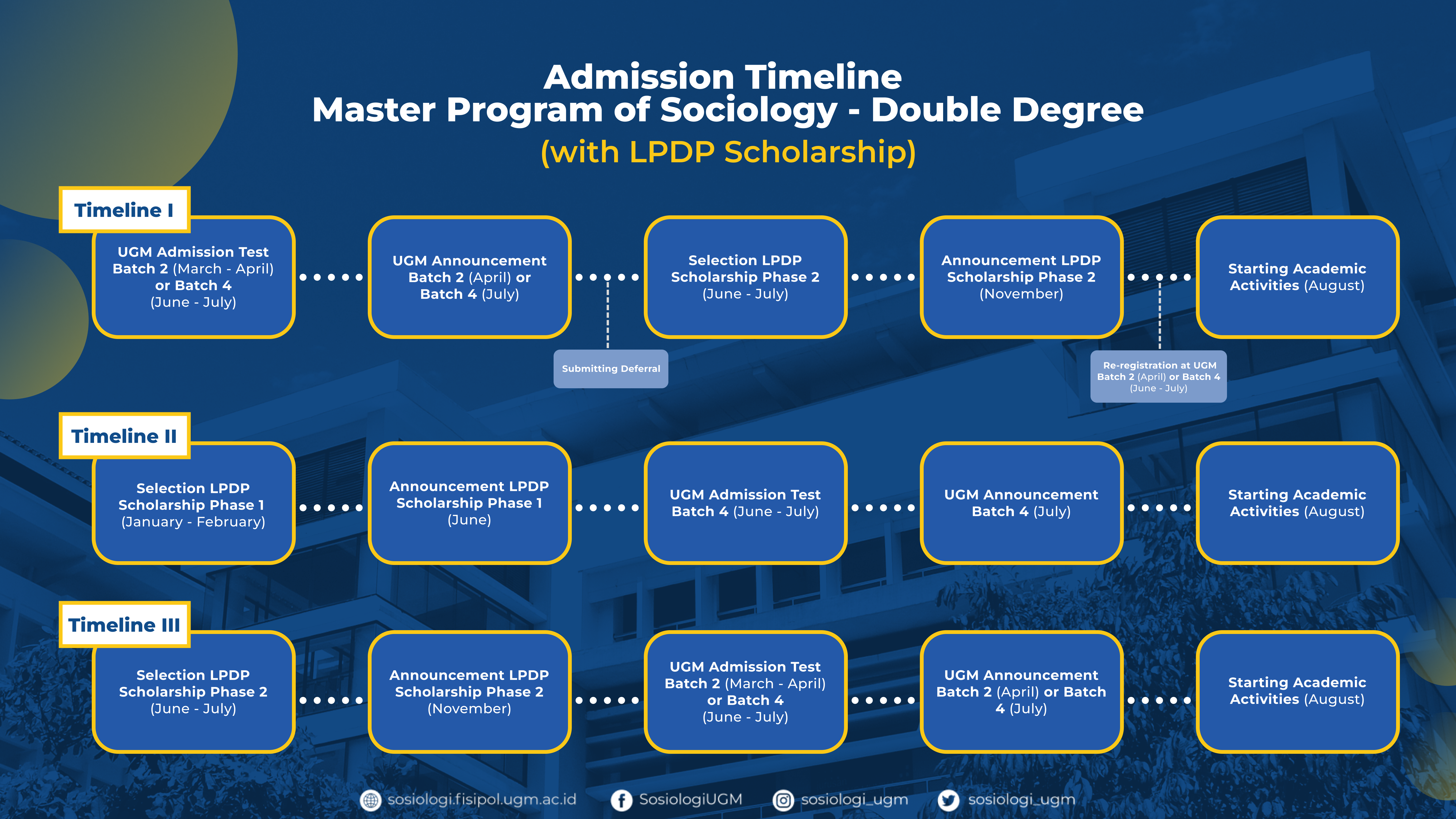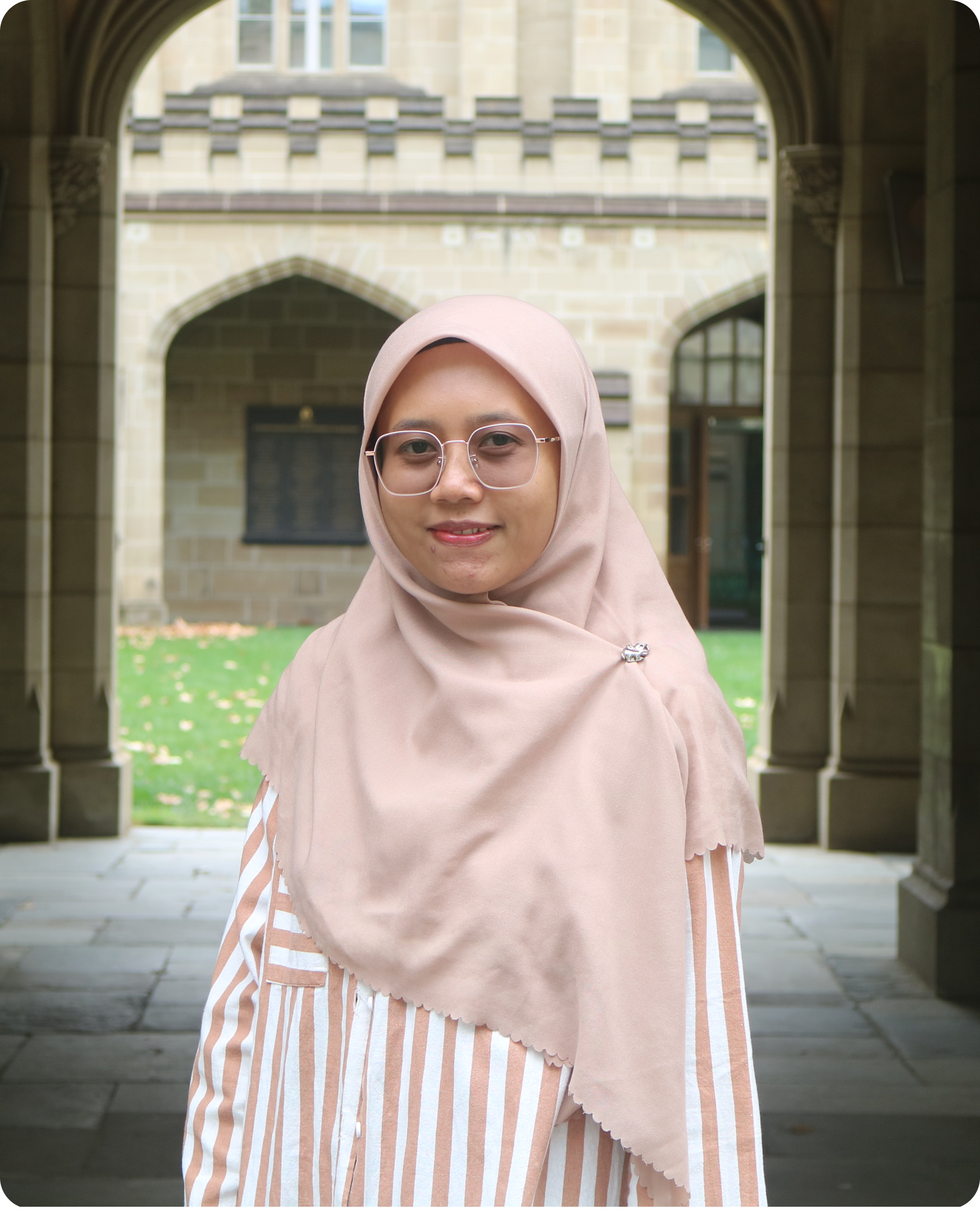
Profile of Study Program
The Master Program in Sociology at the faculty of Social and Political Sciences UGM has been held since 1983 with a focus on critical thinking and emancipatory research
Department of Sociology was established in 1955, and has started to organize undergraduate education programs (S2) since 1983. Based on the decision of BAN-PT. No. 8223/SK/BAN-PT/Ak-PPJ/M/XII/2020 dated December 15, 2020, the Master program (S2) of Sociology, FISIPOL UGM received an accreditation certificate from BAN-P.Ji with an A grade. This certificate is valid for 5 (five) year, from 13 December 2020 to 13 December 2025.
The Master Program in Sociology at the faculty of Social and Political Sciences UGM has been held since 1983 with a focus on critical thinking and emancipatory research. The focus is the dialectical development of the theory and methodology of the sociological discipline and the inter-disciplinary social sciences. At the same time, it is also a substantial distinction for the reproduction of sociology and social sciences at the regional and global levels. The focus applied is the study of Social Policy. This study aims to encourage students to be able to produce social policy ideas that are relevant to the development of contemporary sociology and social science and have a social advocacy basis.
Double Degree Program
In this Double Degree International Program, students take part in the Master of Sociology program (with a specialization in Employment and Social Policy) at Gadjah Mada University, Yogyakarta and Master of Social Policy at the University of Melbourne, Australia.
There are three areas of change that became the background for the establishment of this program. First, changes in the employment landscape caused by demographic changes, industrial transformation, and demands for social security. Second, the establishment of the Social Security System (SJSN) through BPJS Employment and BPJS Health since 2014. Third, the spread of the digital economy has created job losses and job gains, new employment relationships, and new types of vulnerabilities.
Meanwhile, until now there has been no adequate academic endeavors to study these changes in order to adapt and improve the existing social protection system. Therefore, Universitas Gadjah Mada has been partnering with the University of Melbourne in initiating the Master level of the Double Degree program.
The advantage of this program is that students could learn about the dynamics of social problems and social life in the Indonesian context, and at the same time they also gain knowledge about the same problems at the regional and global context. This academic learning will also equip students with rich theoretical understanding and high-quality practical skills to apply their knowledge in policy practice. This program is designed for state civil servants/government agency employees dealing with social protection, employment, and social security providers, as well as individuals working for Non-Governmental Organizations (NGOs) or the private sector in terms of social service provision or social policy/program analysis and social policy planning.
Academic support programs:
- English study group
- Academic Writing Assistance in English
- Workshop presentations, lobbying and writing policy texts
- Field visits and observations
- Regular sharing sessions from experts, policy makers and practitioners
- Pre-departure training prior to Melbourne
- Cross-Cultural Training and Understanding
- Joint Course with students and lecturers from the University of Melbourne at UGM
Terwujudnya institusi pendidikan berbasis riset yang berorientasi pada pencerahan dan social empowerment
- Melaksanakan pendidikan untuk menghasilkan lulusan yang mampu melakukan analisis dan tafsir sosial, serta berpikir kritis
- Melaksanakan penelitian yang berdasarkan pada prinsip-prinsip kritis dan emansipatoris
- Menjalankan program pengabdian yang berbasis advokasi sosial
- Menghasilkan lulusan yang memiliki keahlian analisis dan tafsir sosial serta berpikir kritis
- Menghasilkan para peneliti yang berpegang pada prinsip kritis dan emansipatoris
- Menghasilkan insan akademik yang aktif melakukan pengabdian berbasis advokasi sosial
Graduate Competencies
Competency projection:
- Systematic understanding of sociology and broad social sciences
- Solid knowledge of the basics and principles of social policy in a comparative perspective
- Skills in problem solving and analytical skills in the preparation of social policies
- Comprehensive understanding of recent changes and various social policy models in a global context
- Visionary organizational leadership and managerial skills
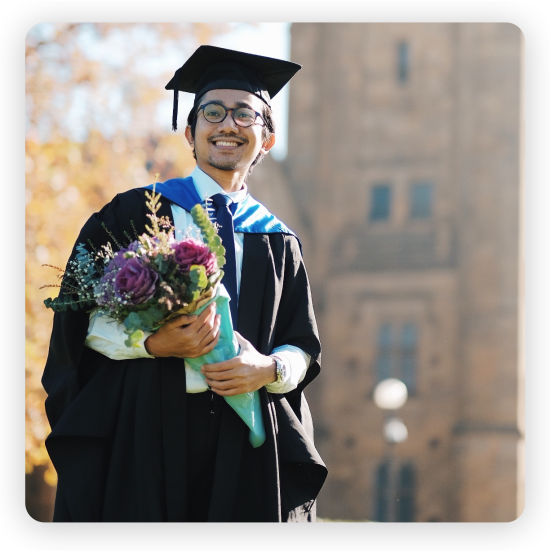
ADMISSION INFORMATION
Double Degree Program
Requirements:
- Academic education background in a co-discipline (social science, political science, economics, demography, etc.)
- Minimum GPA 3.00 scale 4.00
- IELTS score 6.0 or International TOEFL (paper-based test) 530+ or (internet-based test) 74+
- Administrative requirements are listed at http://um.ugm.ac.id
Cost*:
- SPP at GMU Rp 110,000,000, - / package
- tuition fees at the University of Melbourne A $ 35.000, - / year (usually up about 5% per year)
- to undergo studies in Melbourne, students also need the cost of living (living cost) around AUD 2000/month, PP Indonesia-Melbourne airfare, visa fee AUD 560 and insurance AUD 729/year
*Scholarship available through LPDP (beasiswalpdp.kemenkeu.go.id) or Bappenas (pusbindiklatren.bappenas.go.id)
List of Courses - Double Degree Program
